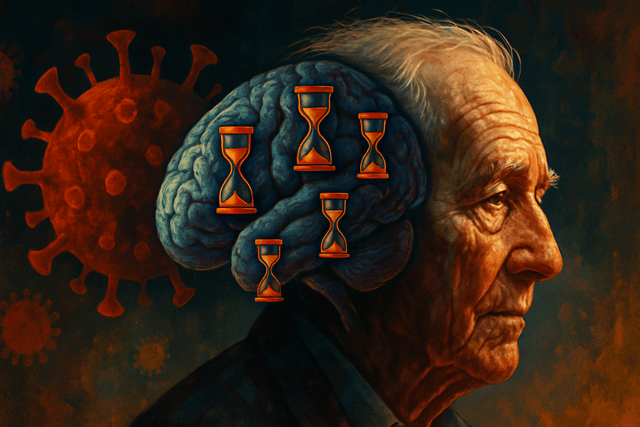A groundbreaking study utilizing artificial intelligence to analyze brain scans has revealed the hidden neurological impact of the COVID-19 pandemic on healthy individuals.
Researchers from the University of Nottingham employed advanced machine learning algorithms to examine brain imaging data from nearly 1,000 adults in the UK Biobank study. By training AI models on over 15,000 pre-pandemic brain scans, the team created a sophisticated brain-age prediction tool that could estimate how old a person's brain appeared compared to their actual chronological age.
The findings, published in Nature Communications on July 22, showed that people who lived through the pandemic experienced accelerated brain aging by an average of 5.5 months compared to those scanned entirely before it. Remarkably, this aging effect occurred regardless of whether individuals had been infected with the virus.
"What surprised me most was that even people who hadn't had COVID showed significant increases in brain aging rates," said lead author Dr. Ali-Reza Mohammadi-Nejad. "It really shows how much the experience of the pandemic itself, everything from isolation to uncertainty, may have affected our brain health."
The brain aging was most pronounced in older individuals, men, and people from socioeconomically disadvantaged backgrounds. Interestingly, only those who were infected with COVID-19 showed measurable declines in cognitive abilities like mental flexibility and processing speed, suggesting that structural brain changes alone may not necessarily translate to functional impairment.
While the study didn't explore specific interventions, the researchers suggest that strategies known to maintain brain health—such as physical exercise, adequate sleep, healthy diet, and social interaction—may help counteract pandemic-related brain aging. They also note that the observed changes might be reversible, offering an encouraging perspective for public health planning.
"Our findings highlight the need to address health and socio-economic inequalities in addition to lifestyle factors to mitigate accelerated brain aging," the researchers concluded. "This study reminds us that brain health is shaped not only by illness but by our everyday environment and major societal disruptions."

